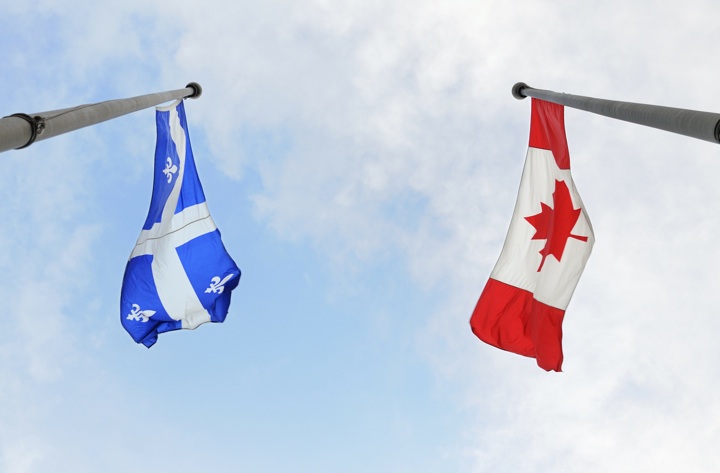MONTREAL – Quebec is the only province in Canada where French is the sole official language.

Bill 101, or the Charter of the French Language as it’s also known, was introduced by the first-ever Parti Quebecois government, led by then-Premier René Lévesque. It was passed into law on August 26, 1977.
The charter was brought into being to address the thorny issue of language in the province, an issue that many historians have suggested began with the Conquest of 1760, when Britain acquired parts of New France at the end of the Seven Years War.
“English-speaking merchants, who formed a minority in New France, soon took control of the economy and would seek to impose their will on the French-speaking majority for the next 200 years,” noted Université du Québec à Montréal historian Mathieu Noël in his article on language conflict in Quebec for the McCord Museum of Canadian History.
It was after the Quiet Revolution in the 1960s that the issue of language in the province took centre stage.
“The situation became potentially explosive, and a conflict over language in the northeast Montreal neighbourhood of Saint Léonard provided the spark that set off the Quebec language crisis of the 1970s,” said Noël.

In 1974, under the leadership of Premier Robert Bourassa, the Quebec Liberal Party brought in Bill 22, which made French the official language of the province.
In the 1976, the Parti Quebecois was elected for the first time. The next year, the party introduced the Charter of the French Language.

The purpose of Bill 101 was to make French the commonly used language of Quebec. It was hoped that this would allow for more francophones to take up management roles in the province. Despite the fact that 85 per cent of Quebecers spoke French at the time, senior positions were mainly held by English-speakers, as the language of management was English in most medium and large businesses.

The language charter made French the official language of government, courts and workplaces. It required that all signs be in French and that all all children attend French school, with the exception of those whose parents attended English school in Canada. The bill also established the Office québécois de la langue française (known colloquially as “the language police”).
“The bill was welcomed by Québec nationalists, but sparked anger among anglophones, allophones and even some francophone parents who lost the right to enrol their children in English school,” Noël noted.
While Bill 101 has fundamentally altered the linguistic landscape of Quebec, language continues to be a controversial and emotional issue in the province.

The preamble to the Charter of the French Language reads:
WHEREAS the French language, the distinctive language of a people that is in the majority French-speaking, is the instrument by which that people has articulated its identity;
Whereas the National Assembly of Québec recognizes that Quebecers wish to see the quality and influence of the French language assured, and is resolved therefore to make of French the language of Government and the Law, as well as the normal and everyday language of work, instruction, communication, commerce and business;
Whereas the National Assembly intends to pursue this objective in a spirit of fairness and open-mindedness, respectful of the institutions of the English-speaking community of Québec, and respectful of the ethnic minorities, whose valuable contribution to the development of Québec it readily acknowledges;
Whereas the National Assembly of Québec recognizes the right of the Amerinds and the Inuit of Québec, the first inhabitants of this land, to preserve and develop their original language and culture;
Whereas these observations and intentions are in keeping with a new perception of the worth of national cultures in all parts of the earth, and of the obligation of every people to contribute in its special way to the international community.

All cartoons used with permission of the McCord Museum. A full online exhibition of some 50 cartoons on language conflict in Quebec from the 1950s to today can be viewed here.


Comments